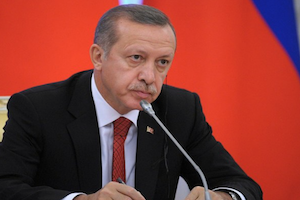Turkey's Russia Affair
By Suat Kınıklıoğlu
September 23, 2019
Turkey’s deepening partnership with Russia needs to be situated within a larger context. Turkey is moving closer toward Russia at a time when the West is beset by considerable turmoil. Seen from Ankara, both Europe and the U.S. increasingly look weaker, divided and ideologically adrift. Above all, though, Ankara’s pivot toward Moscow is driven by the domestic political needs of the Turkish leadership. The primary benefit of deepening the relationship with Russia lies in the legitimization of the current authoritarian rule. Yet ultimately the endeavor to reorient Turkey toward Russia and Eurasia faces the challenge that Turkey’s democratic tradition poses.
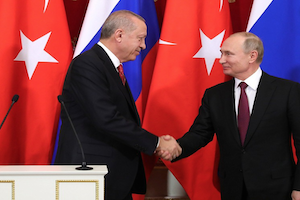
Syrian Safe Zone Moves U.S.-Turkey Relationship Beyond Kobani
By Micha’el Tanchum
August 29, 2019
With Turkey poised for a cross-border invasion to clear northeastern Syria of U.S.-aligned Kurdish forces, Washington and Ankara announced an agreement on August 7, 2019 to jointly create and patrol a safe zone in the region, averting the possibility of the two NATO allies exchanging fire. Far from a climb down for Ankara, the agreement enables Turkey to achieve its minimal goals, and probably more. At the same time, it provides a significant yet delicate reset opportunity for Turkey-U.S. relations that have been severely strained since the U.S.-Kurdish military partnership than began with Battle of Kobani.
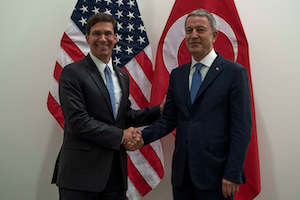
A Dangerous Policy of Turkish Containment in the Eastern Mediterranean
By Micha’el Tanchum
July 3, 2019
Turkey's provocative action of sending two drillships into Cypriot waters to explore for natural gas is a response to a grander provocation coming from the Republic of Cyprus, Greece, Egypt, and Israel to exclude Turkey from the marketing of Eastern Mediterranean gas. This common front, composed of interlinked security partnerships among the region's current natural gas producers and Greece, has been increasingly supported by the United States, France, and Italy, each of whom has significant economic investments in Eastern Mediterranean gas. For Ankara, its NATO allies' support of this common front is tantamount to a policy of soft containment against Turkey. The hardening of this containment through substantial naval support to the Republic of Cyprus as a response to Turkey's actions could send the Eastern Mediterranean into a dangerous escalation spiral that could permanently alter Turkey's relationship with NATO.
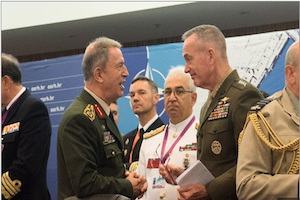
The Kurdish "Other" and the American Enemy Ensure the Cohesion of Turkey's Nationalist Regime
By Cengiz Çandar
February 14, 2019
The perception of a Kurdish threat from Syria, abetted by the United States, has provided the Turkish regime with its raison d’être. It is the glue that holds the power coalition of a variety of ultranationalists together. As long as the regime of President Recep Tayyip Erdoğan relies on the Kurdish “other” for its internal cohesion – and ultimately for its survival – that imperative will continue to determine Turkish foreign policy. But Turkey’s strategic reorientation is also sustained by a long history of deep-seated suspicion of American motives. Indeed, Turkish-American relations were never harmonious and their history has taught the Turkish state elite not to trust the United States, and never before had so much been at stake as today.
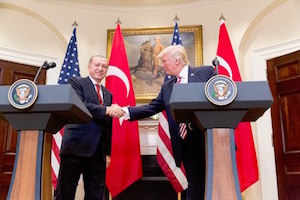
How the Fed Empowered Erdogan, and How It Now Undermines his Rule
By Barış Soydan
February 11, 2019
It is impossible to understand the electoral successes so far of Recep Tayyip Erdoğan, the undisputed leader of Turkey since 2003, without taking the spectacular growth of consumerism in the country into consideration. Notwithstanding the fact that the neoliberal economic policies of the ruling Justice and Development Party (AKP) have disproportionately benefited the wealthiest in Turkish society, low-income earners have also benefited from the economic growth of the last sixteen years. Yet this growth has to a large extent relied on the quantitative easing program of the U.S. Federal Reserve. The end of quantitative easing will be consequential for Erdoğan and his party. Erdoğan is not going to be able to retain the same level of support that he has enjoyed among low-income earners. Get ready for substantial drops in AKP votes in the municipal elections in March.
